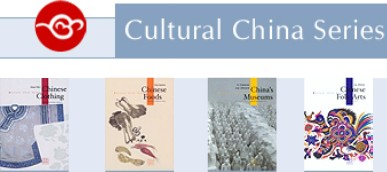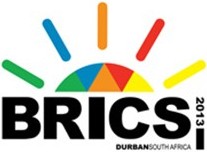In the eyes of Beijing woman Cui Yunshan, 27, and her husband Guan Wei, 26, frequenting cultural activities is "an interesting lifestyle", or even a potential target for market exploration. This young couple sees at least three or four performances each weekend.
But for the 51-year-old director of the National Theatre Company of China (NTCC), Wang Xiaoying, the impulse to examine the human soul has been his primary driving force since the early 1980s.
China's arts have witnessed a significant change since the country set out on the path of reform and opening up in 1978. Despite the seemingly flourishing garden that "lets one hundred flowers bloom", critics have voiced both doubts and hopes about the future of the arts.
Born into a family of traditional opera performers in 1957, Wang was exposed to the arts at a very young age. After four years with a local performing arts troupe in southern Anhui Province, he abandoned his admittance to Anhui Institute of Technology in preference for the Central Academy of Drama (CAD) in 1979. "My intuition told me that my life would be devoted to the arts."
Wang and his 19 classmates, the first batch of directing majors since the Cultural Revolution ended in 1976, were strictly trained under the drama system adopted from the Soviet Union. "On the whole, it followed the traditional line: the arts are a tool to reflect reality and serve social needs."
In his third year, Wang sensed a change, both in society and on campus. "We had the chance to read Western works, notably the absurd theater lead by Samuel Beckett and epic theater led by Bertolt Brecht." The 'spring breeze of reform' was stirring across China's arts world, and artists were experiencing a cultural reawakening that lasted for a full decade.
Later, Wang was able to see for himself foreign performances. The young man was deeply moved by a Japanese drama that told of a frog's adventures on a tree. "It never occurred to me that an adult's outlook on the world could be reflected by animals. My previous concept that realistic drama is the 'unbreakable golden rule' was rudely challenged."
When Wang enrolled in the China National Youth Theater (the predecessor of NTCC) upon graduation in 1984, he was immersed in a movement of experimentation. "It was imperative to go through reform, to prevent the extinction of drama in the face of the mushrooming film and television scene."
Two years later, the 28-year-old director put on his debut production, The Magic Square. Written by a student from East China's Normal University, it was divided into nine sections, each telling its own distinct story. A multitude of artistic forms were exercised, such as the monologue, mime, interview, and even advertising.
"Novel as it was, the theme was easily grasped: the young generation's multi-faceted thinking, or criticizing, of society and the meaning of life," Wang recalls, still excited. "I was enveloped by an urge to confront traditional drama."
The passionate audiences also experienced the urge, and the drama was shown consecutively for more than 80 nights in Beijing and Shanghai, winning acclaim from the avant-garde and brickbats from conservative supervisors.
It was thanks to his controversial experimental dramas that Wang was tagged "the most pioneering director in China".
Nationwide, other drama directors were also experimenting with what they termed "an exploration of both artistic ideas and expression". "I was starting to search the innermost part of the mind. I could see clearly the shortcomings of Teahouse or Thunderstorm models that had been passed on from one generation to the next."
To Wang and his colleagues' profound disappointment, the experimentation movement culminated in 1988 with the drama Recollections of Mulberry Village before fading away in the early 1990s. "With the receding tide, many dramatists paid too much attention to the form instead of the essence of the arts. They claimed to make experimental drama, but what they cared about more was money, which goes against the critical spirit of this form."
Throughout the 1990s, the Chinese arts were confronted by a new master: the market. The number of government-sponsored drama theaters fell from around 200 to less than 100. Wang believes this could be partly attributed to a new policy of "no money, no existence" introduced in 1998. Small theaters with low audience numbers were squarely removed from the list.
But the stubborn Wang has stuck to his quest for "humanity's struggle in a predicament", a central theme dating back to the thriving 1980s. One of his favorite works is British playwright Michael Frayn's Copenhagen, which centers on German nuclear scientist Werner Heisenberg's visit to his teacher Niels Bohr during World War II.
"The drama examines a scientist's position as war approaches. Is it morally acceptable or not to fight for his motherland and commit crimes against humanity by the invention and application of nuclear bombs?" Wang asks.
But for Cui, Guan and their young fellows, the arts no longer carry such heavy concepts.
Since they started to appreciate arts in 2001, the young couple has developed an interest in all the arts, including college theater, installations, independent documentary movies, or rock-and-roll bands.
"We like to experience new and amusing things," says Guan, a marketing specialist with a local IT company.
In 2006, they set up a group named Elvita and V's Scratchpad on www.douban.com, a popular Chinese website dedicated to the sharing of books, DVDs, music and films. They compile listings of all the arts events in Beijing and send out free weekly and monthly e-mails and bulletin board postings to its 7,600 members.
More than eighty percent of the members are college students and young professionals. "It's enjoyable to provide convenience and options to those interested in arts," Guan says.
"In terms of the arts, China is in its prime," he says. "Looking back at the past eight years, it's developed from idealism to realism or industrialization, which is a good thing. Chinese artists have managed to find a balance between the quality of performance and market success. They have come to rely on their senses and gradually matured."
The 798 Art Zone in east Beijing, where modern galleries and art studios sprawl on a former wireless factory, exemplifies this attitude.
Another success story is Xi Yao Tang, the first private drama studio established in Beijing in 2005. Targeting young audiences, the company chooses light topics or comedies such as white collar romance in big cities. How Much Love Can Be Wasted, a small-theater drama, has been shown more than 200 times since its debut in 2005, exceeding most of the NTCC's works.
Guan, who majored in law, also envisions making the scratchpad into a commercial product "if the proper time and resources are there".
More meaningful for the couple is the 'freedom to choose'. "One's happiness has nothing to do with the outside world and the Chinese artists are free to express themselves, without shackles."
But for director Wang, the context of 'diversified culture' is still elusive. "Amusement is the focus these days, while the deep meaning of drama is neglected by the majority. The authorities have yet to introduce a flexible mechanism, and differentiate non-profit, serious-themed dramas from commercial shows. "
But the hotbed of cultural renaissance has come into being, observes Liu Jun'ning, a scholar with the Institute of Chinese Culture affiliated with the Ministry of Culture. The market economy, a growing emphasis on personal value and a freer space are all the positive factors for the booming arts, he says.
"The globalization brought about by internet and market economy is pushing forward China's link with the world, thus paving the way for the Chinese going much deeper inside and further outside in terms of their mindset," he says. "A new humanitarian movement is just knocking at the door."
By Gong Yidong
--Ends--













